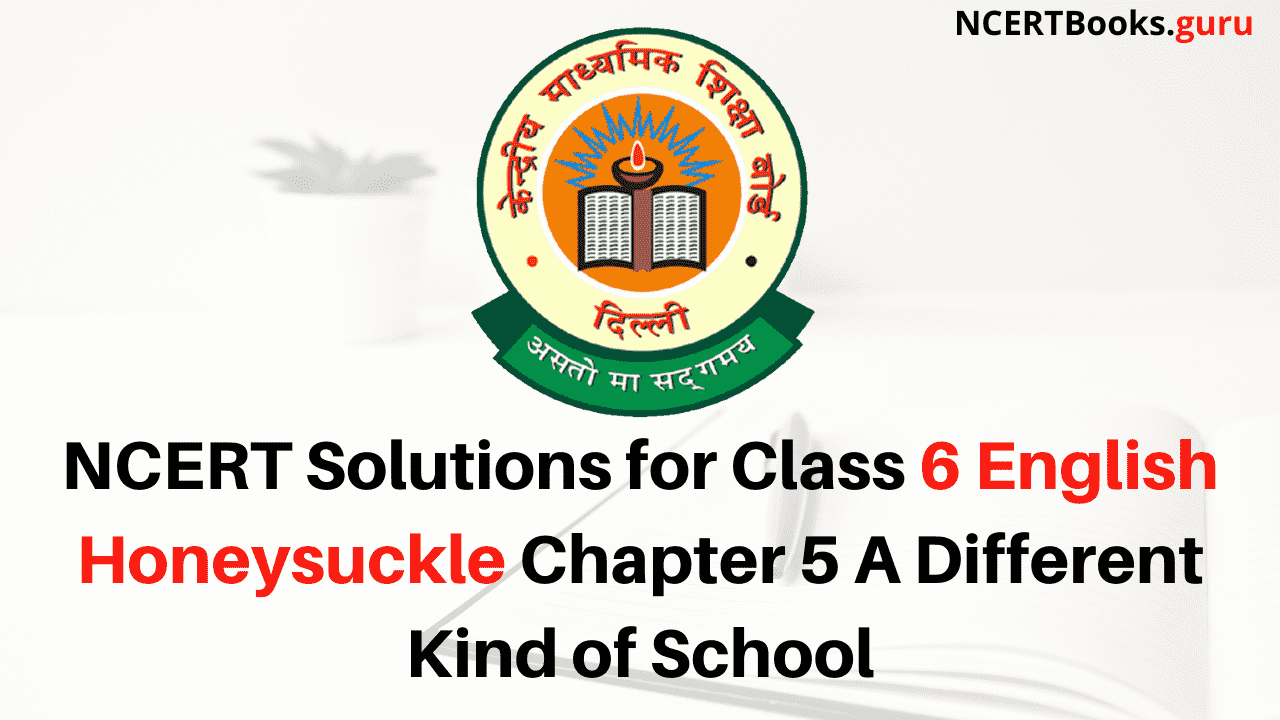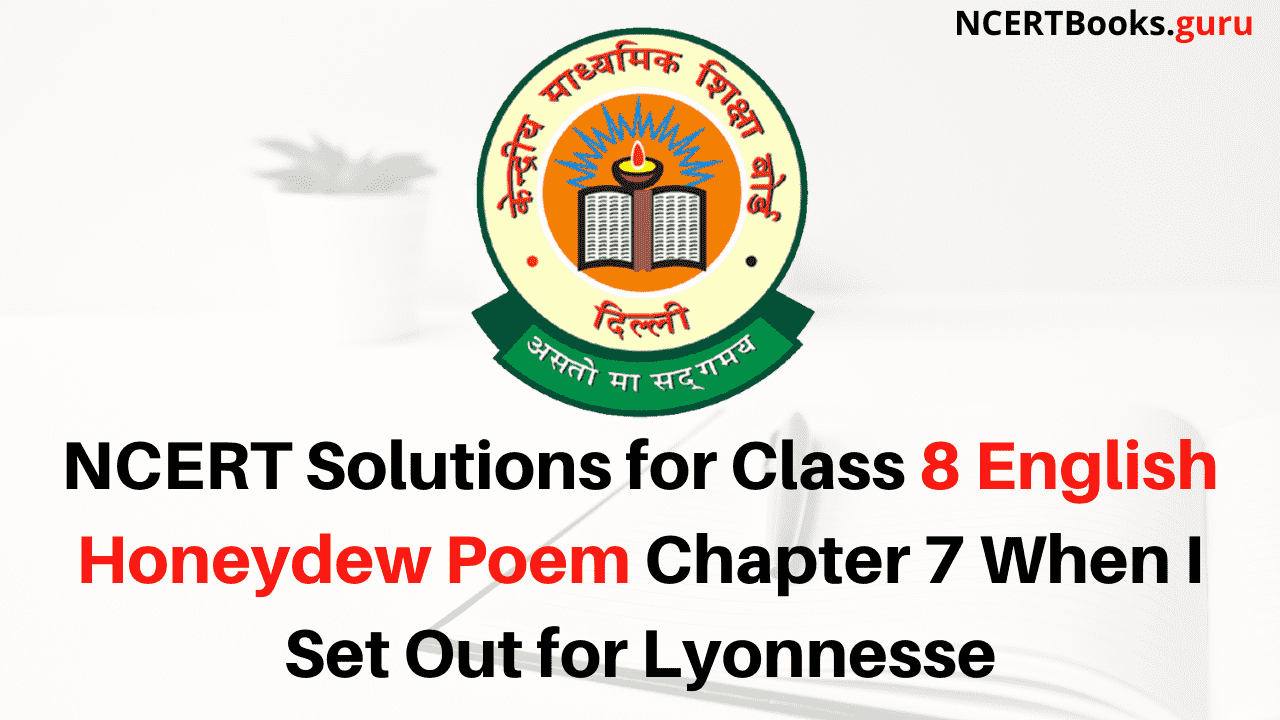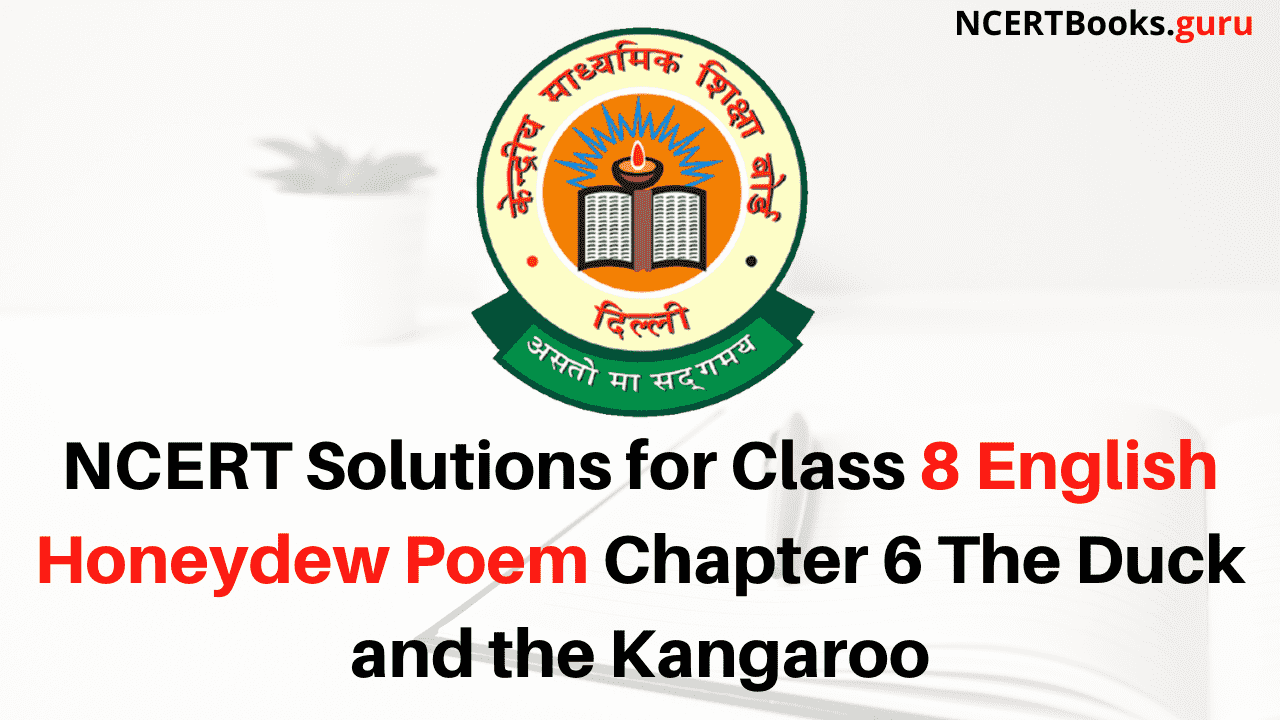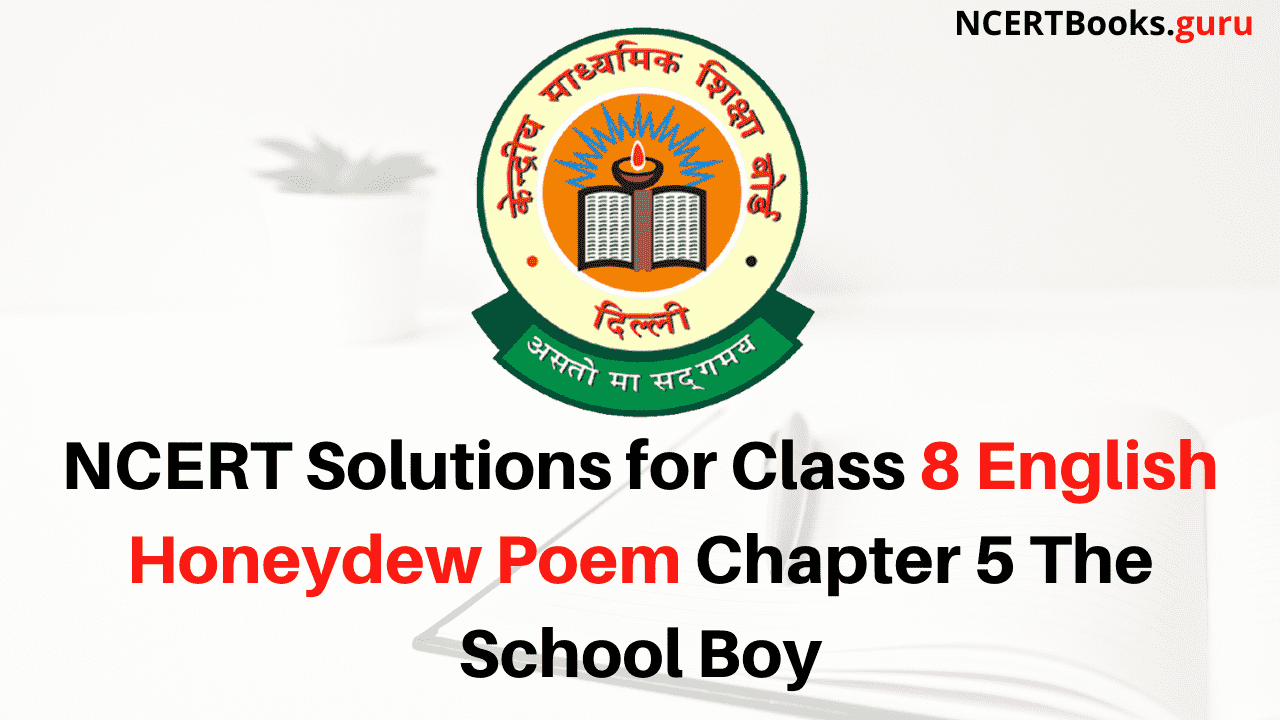Class 11 English Chapter 8 Poem NCERT Solutions Father To Son Free PDF Download
NCERT Solutions for Class 11 English
Father To Son Think it Out
Question 1.
Does the poem talk of an exclusively personal experience or is it fairly universal?
Answer:
The poem ‘Father to Son’ describes the relationship between a father and son. However, its appeal is fairly universal. What happens in the poem, happens to most, fathers and sons. It is very common in every family all over the world. The generation gap has remained as it is. Moreover, the structure of society is such that a father expects his son to follow his wishes, leading to individuality clashes. Through one personal experience, the poet wants to throw light on a common and universal problem i.e. generation gap.
Question 2.
How is the father’s helplessness brought out in the poem?
Answer:
In the poem both the father and the son are poles apart. Though both of them have lived under the same roof for years, still the father is unhappy and can’t understand his own child. He wants to build up a relationship with his son, but there is a generation gap between them; they lack of understanding and no communication takes place between the father and the son. The father feels helpless and thinks that giving birth to such a son is like sowing a seed in land that was not his own. He knows nothing about his son’s desires and likes. He wishes his prodigal son would come back home.
Question 3.
Identify the phrases and lines that indicate distance between father and son.
Answer:
The following phrases and lines bring out the deep differences that separate both of them
(i) I do not understand this child
(ii) I know nothing of him
(iii) We speak like strangers
(iv) What he loves I cannot share
(v) Silence surrounds us
(vi) There’s no sign of understanding in the air
(vii) He speaks: I cannot understand
Question 4.
Does the poem have a consistent rhyme scheme?
Answer:
No, the.poem doesn’t follow a consistent rhyme scheme.
The poem is divided into four stanzas of six lines each.
The first three stanzas follow abb ab a scheme. The fourth stanza has abb cb a scheme.
Father To Son Extract based Questions and Answers (2 Marks)
I. Read the extract given below and answer any two of the questions that follow.
I do not understand this child
Though we have lived together now
In the same house for years. I know
Nothing of him, so try to build
Up a relationship from how
He was when small.
Question 1.
Who are T and ‘this child’ in the above lines?
(a) ‘I’ is the mother and ‘this child’ is the mother’s son
(b) T is the brother and ‘this child’ is his younger brother
(c) ‘I’ is the father and ‘this child’ is his son
(d) ‘I’ is the uncle and ‘this child’ is his nephew
Answer:
(c) ‘I’ is the father and ‘this child’ is his son
Question 2.
What does the speaker complain about?
(a) The speaker complains that he knows nothing about his son
(b) The speaker complains that he knows a few bad things about his son
(c) The speaker complains that his son does not take care of him
(d) The speaker complains that his son is a drunkard
Answer:
(a) The speaker complains that he knows nothing about his son
Question 3.
What does the speaker want?
(a) The speaker wants to end his relationship with his son
(b) The speaker wants to make his son realise his mistakes ‘
(c) The speaker wants to live with his son
(d) The speaker wants to start a new relationship with his son
Answer:
(d) The speaker wants to start a new relationship with his son
II. Read the extract given below and answer any two of the questions that follow.
Yet have I killed
The seed I spent or sown it where
The land is his and none of mine?
We speak like strangers, there’s no sign
Of understanding in the air.
This child is built to my design
Yet what he loves I cannot share.
Question 1.
Why does the father feel that the seed was sown in the land that was not his?
(a) Because the son does not share any of the physical features of his father
(b) Because the son shares the physical features of his father
(c) Because the son does not share any of the behavioural characteristics of his father
(d) Because the son shares some of the behavioural characteristics of his father
Answer:
(c) Because the son does not share any of the behavioural characteristics of his father
Question 2.
What is wrong between father and son?
(a) Father and son do no| resemble each other
(b) Father and son have a dispute related to their property
(c) Father likes his son but the son likes his mother
(d) Father and son behave like strangers and do not share any common likes or dislikes
Answer:
(d) Father and son behave like strangers and do not share any common likes or dislikes
Question 3.
“Built to my design” means
(a) that his son does not look like him
(b) that his son looks like him as far as physical features are concerned
(c) that his son wears the same brand of clothes that he does
(d) that his son wears clothes designed by him
Answer:
(b) that his son looks like him as far as physical features are concerned
III. Read the extract given below and answer any two of the questions that follow.
Silence surrounds us. I would have
Him prodigal, returning to
His father’s house, the home he knew,
Rather than see him make and move.
His world. I would forgive him too,
Shaping from sorrow a new love.
Question 1.
What does ‘silence surrounds us’ mean here?
(a) It means the silence of the night .
(b) It means the silence in the house due to the switching off electrical appliances
(c) It means the silence in the house due to the demise of a loved one
(d) It means the silence due to no conversation happening between the father and the son
Answer:
(d) It means the silence due to no conversation happening between the father and the son
Question 2.
What does T want?
(a) ‘I’ wants his son to study hard
(b) T wants his son to not follow his wishes
(c) T wants his son to be realistic
(d) T wants his son to reciprocate forgiveness and mend the relationship
Answer:
(d) T wants his son to reciprocate forgiveness and mend the relationship
Question 3.
Find a word from the extract which means a person who spends money or uses resources freely and recklessly.
(a) Returning
(b) Prodigal
(c) Prodigy
(d) Shaping
Answer:
(b) Prodigal
IV. Read the extract given below and answer any two of the questions that follow.
Father and son, we both must live
On the same globe and the same land,
He speaks: I cannot understand
Myself, why anger grows from grief.
We each put out on empty hand,
Longing for something to forgive.
Question 1.
Who are ‘we’ in the extract?
(a) The father and his two sons
(b) The father and his friend’s son
(c) The father and his son
(d) The uncle and his son
Answer:
(c) The father and his son
Question 2.
Why must father and son live on the same globe and the same land?
(a) To take care of each other
(b) To not let others to take disadvantage of them staying apart
(c) To make their life easy
(d) To rebuild their relationship
Answer:
(d) To rebuild their relationship
Question 3.
What does ‘empty hand’ signify?
(a) It signifies the poverty of the father
(b) It signifies the failure of the father and the son to understand each other
(c) It signifies the poverty of the son
(d) It signifies the bad behaviour of the son
Answer:
(b) It signifies the failure of the father and the son to understand each other
Father To Son Short Questions and Answers (2 Marks)
Question 1.
Why doesn’t the father know anything about his son though they have lived in the same house?
Answer:
The father-son relationship is actually non-functional. The father doesn’t understand the aspirations, longings arid cravings of the son. They do not communicate with each other and behave like strangers. Therefore, the father doesn’t know anything about his son.
Question 2.
Is the father responsible for the present situation? What are your views?
Answer:
Yes, I think the father is responsible for the present situation. We do not get to hear the son’s version about his relationship with the father here. But the father is guilty of allowing continued silence or non-communication between them and also not understanding the son’s aspirations and feelings.
Question 3.
Father and the son behave like strangers to each other. What can be the possible reason with for this?
Answer:
They both act and behave like strangers due to lack of understanding with each other. A growing son has his own ambitions and aspirations. Elders must try to act like friends rather than command their children to behave according to their orders.
Question 4.
What does the poet mean by ‘Silence surrounds us?’
Answer:
The father feels helpless as he has no dialogue with his son. They don’t understand each other and they are living like strangers to each other in spite of their living under the same roof for years. Their outlook and temperament are so different that they remain separated from each other. They have a communication gap along with the generation gap, which causes the silence.
Question 5.
How does the father feel when his relationship with his son comes under strain?
Answer:
Father feels very helpless at this situation when both father and son do not understand each other. It saddens him to understand that he has never tried to understand his son’s perspective and his son has distanced himself from him from long.
Question 6.
What is the father’s attitude towards his son in the third stanza?
Answer:
The father wants to rectify the situation in the third stanza. The father wants his son return to the home that he has left. The father is willing to forgive his son and restart their relationship.
Question 7.
What does the father wish for?
Answer:
The father is unhappy and helpless. He wants to maintain a healthy relationship with his son. The father wants that his prodigal son may return to his home and start living under the same roof with him.
He doesn’t want that he should create and live in a world of his own.
Question 8.
The father is ready to have his prodigal son return. What inference can you draw from this?
Answer:
Prodigal means wastefully extravagant. Here the reference is to the story in the Bible in which a father gives his inheritance to his sons. The younger brother leaves, wastes his fortune and returns to his father’s home. Still the father is ready to take him back and forgive him. In the poem, the father also wants to forgive him so that they live peacefully together again.
Question 9.
The root cause of the generation gap presented in the poem lies in the fact that it is only the father talking to his son rather than hearing or understanding him. Explain.
Answer:
One of the reasons of the generation gap is absence of understanding and communication. Here in this poem we hear only the father’s point of view. We do not hear anything from the son’s side. The root cause of the generation gap has been lack of sharing of interests or not paying attention to the childs, emotional needs, when he is growing up. The child should be allowed to express his opinions freely and adults should not behave like dictators.
Question 10.
What do the words ‘an empty hand’ signify?
Answer:
The words ‘empty hand’ signify that both the father arid the son want to forgive each other and extend a hand of friendship to each other, but neither of them is willing to be the first one to do so. This means that although they are longing to forgive each other, their egos are coming in the way so that none of them wants to be the first one to do so.
Father To Son Long Questions and Answers (6 Marks)
Question 1.
The poem talks about the universal problem of generation gap. Why does such a situation exist? How can someone avoid such confrontations? Express your views in 120-150 words.
Answer:
Generation gap is a psychological and emotional gap between parents or elder people and the younger ones. This creates misunderstanding and lack of attachment between parents and children. The success of parenting lies in how effectively they avoid the generation gap or ignore differences with their children.
Generation gap is the result of the fast paced development of society. In earlier times, two or three generations lived in the same lifestyle and environment, as development was slow. Today, parents do not even know many of the modem technologies and equipment children use.
Being up-to-date is the only way to cope .with the generation gap. Moreover, generation gap occurs when there are differences of opinion. One should be flexible in approach and must try to understand the reason of a particular behaviour.
Question 2.
In the fast moving materialistic world, parents are busy in earning while their children grow without them giving enough time to them. This is a major factor in creating a generation gap. There should be a balancing act on the part of parents. Discuss.
Answer:
In today’s materialistic world parents, specially fathers, are busy with their careers, finding very little time for their children.
Childhood is a tender age and the child needs his/ her parents at every stage of his growing up. In the pursuit of money or career, children are left at the mercy of caretakers or maids who may provide or fulfil child’s basic need but their emotional and intellectual needs are left unfulfilled. Bonding between parents and children keeps on diminishing until it reaches an alarming level.
Parents need to understand that between career and children, a balancing act has to be practised. Children need their parents to guide them, to share their likes and dislikes, to spend quality time with them.
No parent should allow such a situation where they may not understand their children or there may be no communication at all between them. Emotional bonding is a must for a family to stay together.





















